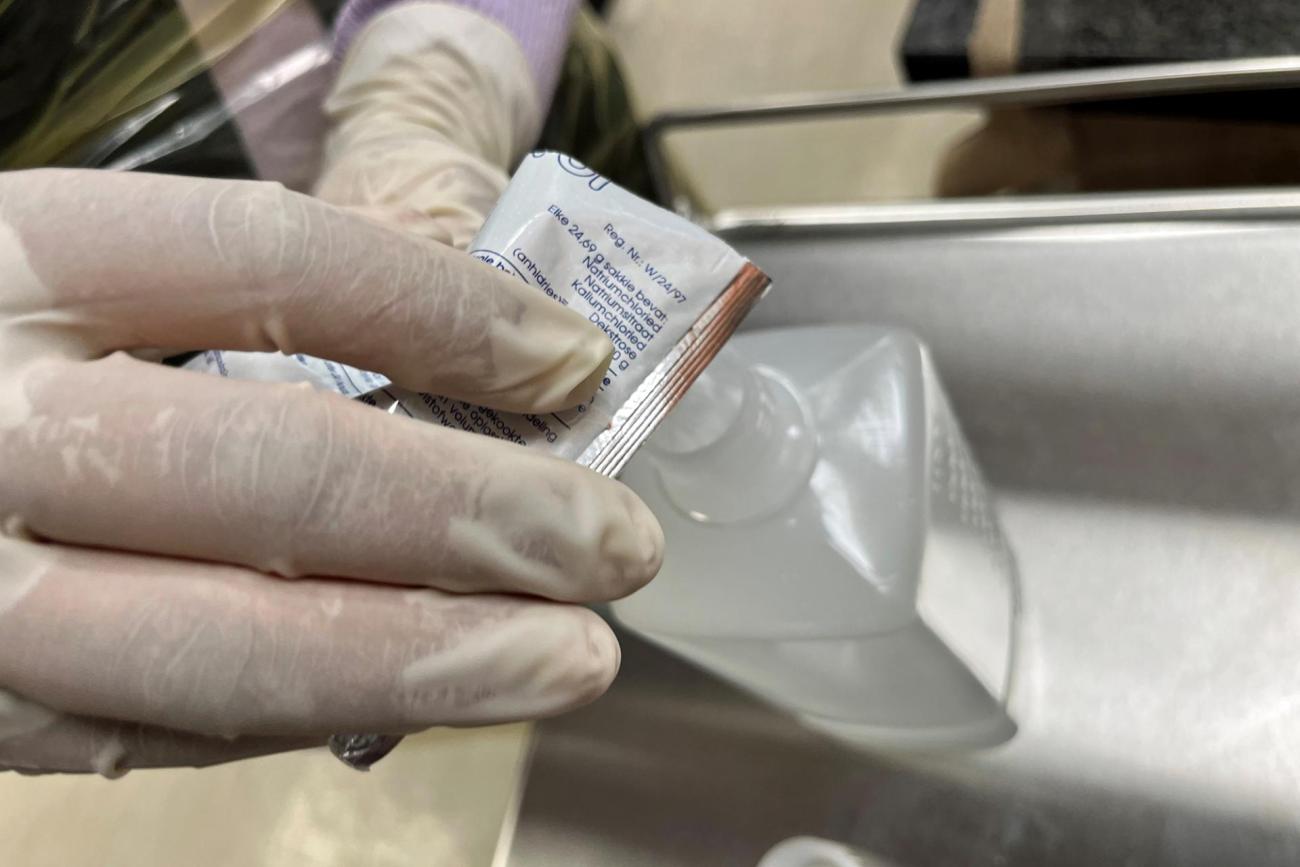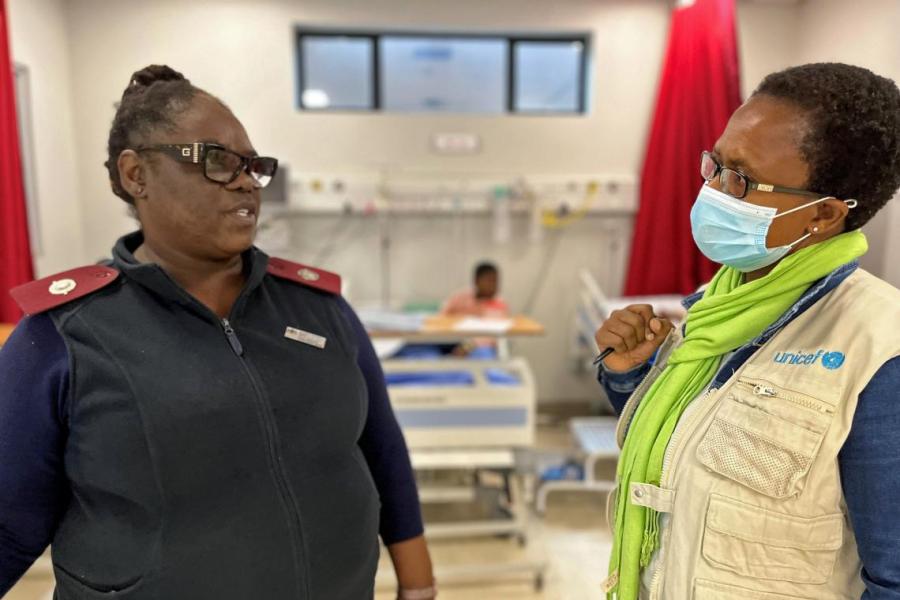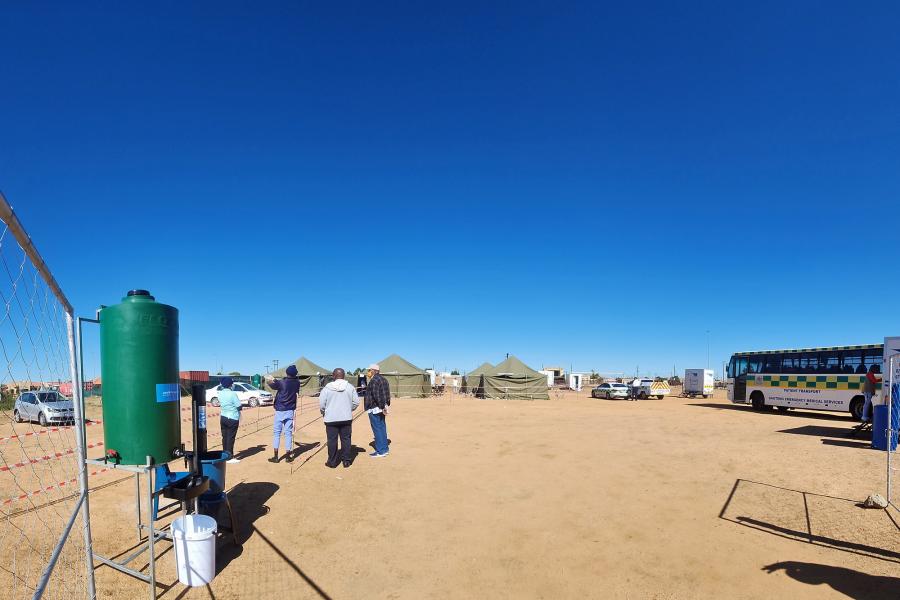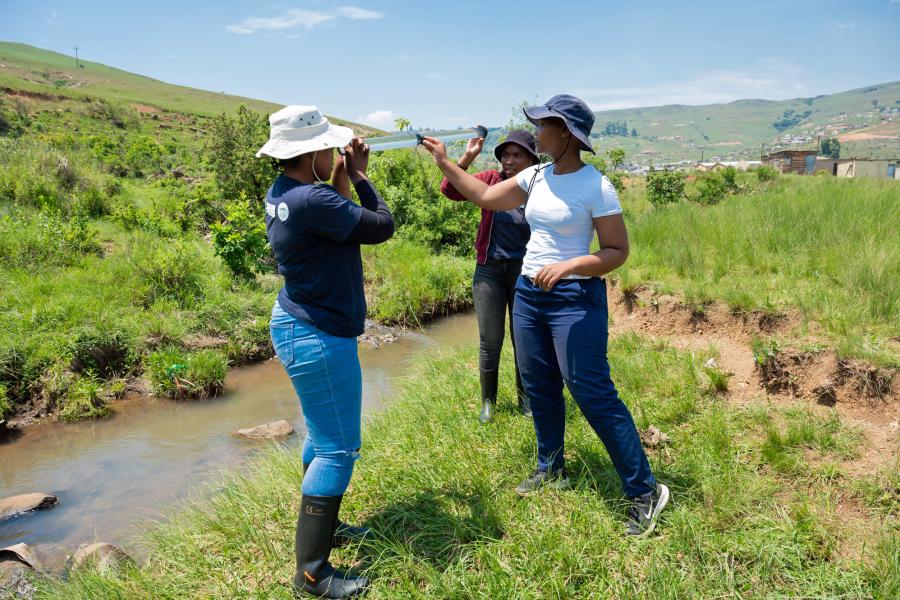Race against time to contain cholera outbreak and save lives

UNICEF and UN in South Africa scale-up health, water and sanitation and lifesaving communication on cholera outbreak response in most affected areas.
“It’s hectic,” says sister Ndlovu, as she reflects on the cholera situation at Jubilee District Hospital in Hammanskraal, Gauteng province. Most people admitted to the cholera ward since mid-May have displayed symptoms of severe dehydration with their kidneys already impacted, she explains
The three children in the ward are recovering thanks to the critical early medical care they received. “I play football, I’m a striker,” says 12-year-old Thebiso when asked about his favorite sport. He just wants to get better and get out on the sports field again.

“The immediate priority is to save lives. In the case of cholera, that means knowing the symptoms, as well as how to best prevent infection in the first place.” Janine Simon-Meyer, UNICEF South Africa Social and Behaviour Change Specialist.
A short distance from the hospital is the Kanana informal settlement, the epicenter of the current outbreak. A field hospital has been set-up on the local sports ground where people can walk in and be assessed and treated if necessary. More serious and suspected cholera cases are then referred to the Jubilee hospital.
Improving access to and promoting good hygiene
UNICEF South Africa has set-up a handwashing station at the field hospital, as well as in two nearby schools and will expand this work to other schools and early childhood development centres across the affected areas.

This requires a household level response and UNICEF is working with the South African Red Cross Society to provide lifesaving information people in hot spot and at-risk areas. This ground level approach is complemented by digital outreach and engagement. More than 230,000 young people have received cholera prevention messages through the U-Report messaging platform and can access an informational chat bot for more guidance. Social media platforms also continue to push out related content.
Early warning and anticipatory action
The cholera outbreak in South Africa reaffirms the critical importance of investing in water, sanitation, and hygiene (WASH) systems. Some 97 per cent of global cholera cases from 2010-2021 occurred in countries with the world’s lowest water and sanitation services levels. In places where WASH services are compromised, the risk of cholera outbreaks rises exponentially.
UNICEF continues to advocate for the right investments into these systems and provides technical support where needed, leveraging years of global cholera outbreak experience. UNICEF South Africa also champions the ‘citizen science’ approach that encourages children and young people to play an active role in protecting the environment around them and building their own skills at the same time.
This includes playing a role in a ground-up early warning system by identifying sources of pollution in local streams and water bodies to inform local authorities.

Through a partnership with The Duzi Umngeni Conservation Trust (DUCT) and NGO GroundTruth, a simple water testing kit, the ‘mini-SASS’, is used by ‘Enviro Champs’ to monitor water quality. The findings are fed back into an online database and to local authorities to provide an early indication of sewage leakages and other potential forms of water pollution.
“A cleaner stream can better manage pollution and heal itself even if there is a dose of sewage or pollution but once a stream goes past a tipping point it can’t clean itself,” explained Dr. Mark Graham from GroundTruth, speaking to UNICEF in late 2022.
The quality of water from streams, such as Mthinzima in KwaZulu-Natal is critical as they ultimately flow into reservoirs and provide an essential resource for communities. Keeping water safe, as opposed to cleaning polluted water, can save large sums of money.








